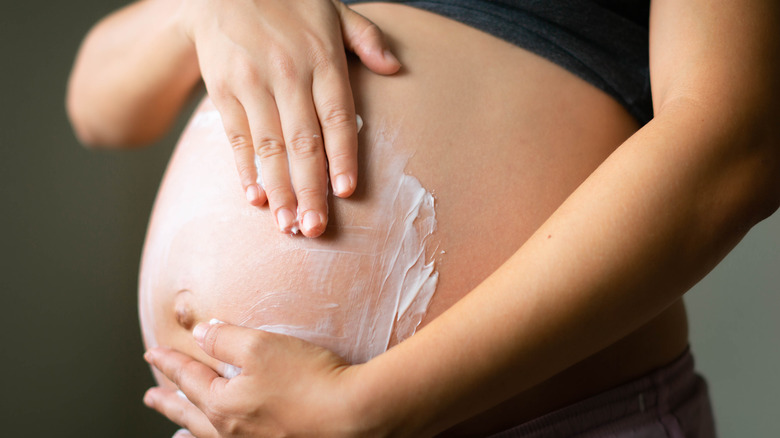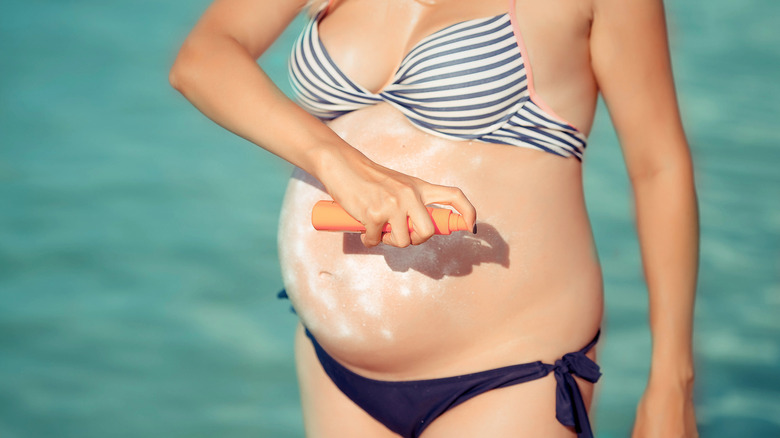
By Elizabeth S. Mitchell/Aug. 27, 2021 11:11 am EDT
We’ve written a lot about sunscreens of late, discussing the varied options for different skin types, different body parts (hair sunscreen, anyone?), and even sunscreens that align with environmentalist values. But there’s one sunscreen topic we haven’t covered yet, and that’s which ones are best (and worst) to use when you’re expecting a little one.
If you’re pregnant, then you are likely already aware that things that might be safe for you, as a grown adult, in small doses, isn’t safe during pregnancy, as the fetus is still developing and therefore very sensitive to potentially damaging substances (via Web MD). While this more obviously applies to things you eat and drink, it also applies to what you put on your skin, as much of what you use topically can be absorbed into your body, thereby affecting the baby.
In the case of sunscreen, there are those that are likely safe to use while pregnant, and those that you should probably steer clear of (via Byrdie).
Sunscreen ingredients to avoid when pregnant
In order to understand why some sunscreens are safer than others during pregnancy, it helps to be familiar with the difference between chemical sunscreen and physical or mineral sunscreen (via Byrdie). Chemical sunscreens are absorbed into the skin and protect from sun damage from that way, while physical (also called mineral) sunscreens are not absorbed, and instead block harmful rays by sitting on top of skin and making a physical barrier. With regard to pregnancy, it is safer to use physical sunscreens, as they do not get absorbed into your body.
Common chemical sunscreens that you’ll want to avoid if pregnant include avobenzone, oxybenzone, and homosalate. These ingredients have been shown to affect hormones in animal studies, and so it is best to steer clear of them just to be safe. Physical/mineral sunscreens that you should look for instead include active ingredients like zinc oxide and titanium dioxide, which do not get absorbed into your body and therefore can have virtually no effect on your growing baby.
Source: Read Full Article

